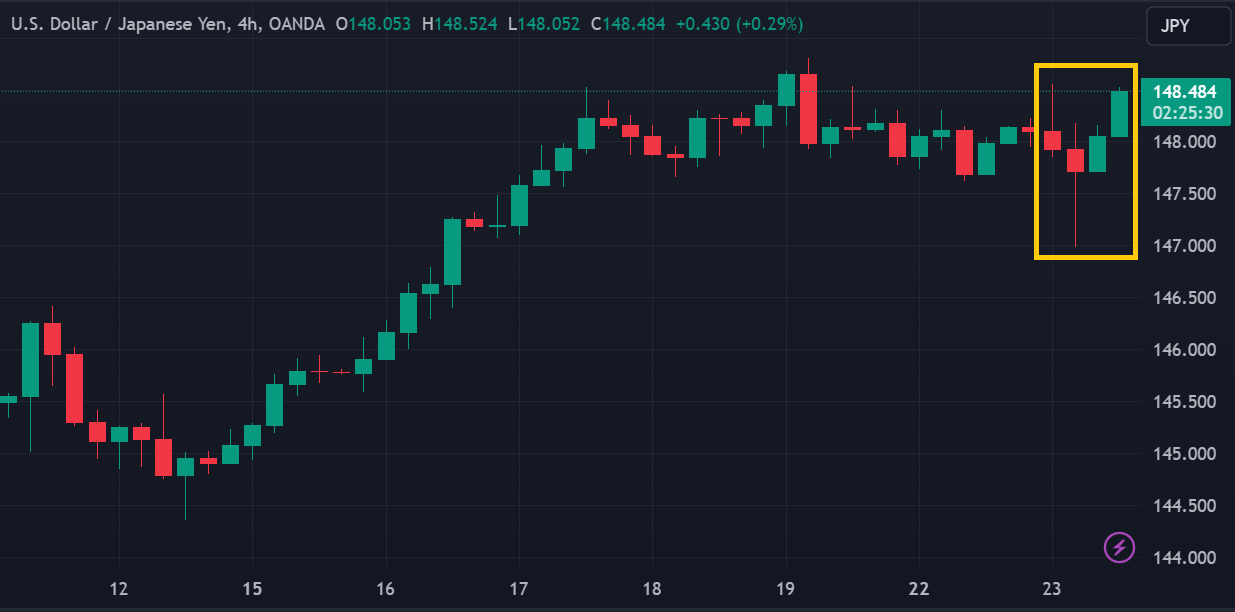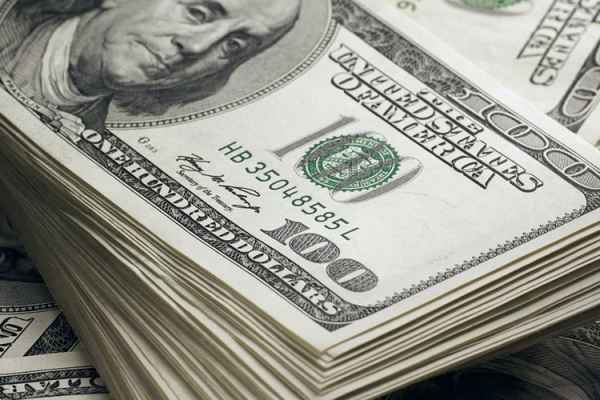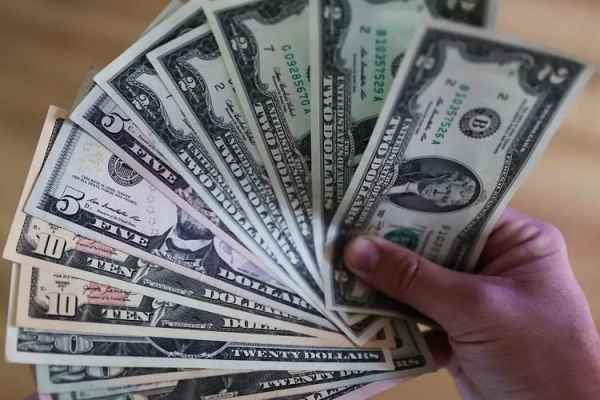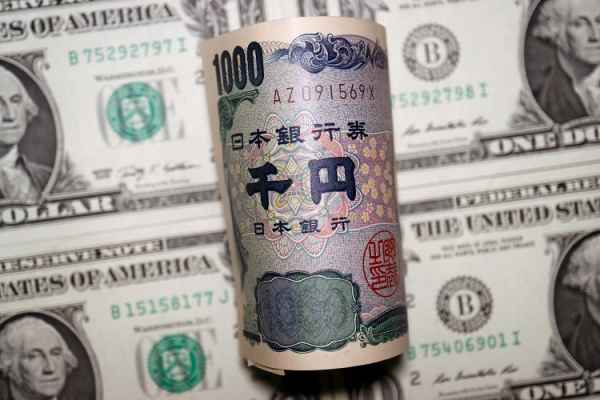USDJPY and other Yen crosses were volatile as the market was unnerved by the Japanese central bank's announcement this morning.
Yen volatility increased in trading on Tuesday (23/January) due to market unrest over the Bank of Japan (BoJ) interest rate announcement. USD/JPY rose, fell, and then moved back up to 148.50 at the time of writing.

The BoJ meeting this morning decided to maintain the current monetary policy, including negative interest rates. BoJ Governor Kazuo Ueda also gave no clues as to when the central bank will normalize its interest rates. However, Ueda said there is a gradual improvement in Japan's chances of achieving its 2% inflation target on a sustainable basis.
The BoJ has been highlighting the annual wage negotiations (Shunto) as an important factor that can lift national inflation. Shunto usually takes place in the spring.
Ueda revealed that many companies have already decided on wage increases earlier this year, and many labor unions are demanding quite high wage increases. Therefore, the BoJ has a more optimistic view of future inflation prospects.
Several analysts consider the increase in inflation expectations to sign that the BoJ will start raising interest rates in April or March. The yen had strengthened in the Asian session due to this optimism.
"BOJ doesn't need to wait till Shunto wage negotiations end before assessing whether to normalise policy," said Christopher Wong, a currency strategist at OCBC. "So in a way, back-to-back annual wage increases (by a larger magnitude this year) is probably something Japanese officials are hoping to see before making a move. This could well imply that (the) March meeting is live."
Unfortunately, USD/JPY soon climbed back into the range it has inhabited since last week. The Yen continued its gains against the Euro into the New York session but struggled against the US Dollar and Sterling. AUD/JPY also remained relatively stable at high levels, as rumors of new stimulus from China supported the Aussie Dollar.
Market participants now have more confidence in the Federal Reserve's ability to keep interest rates high for longer rather than the BoJ's rate hike speculation. BoJ officials since last year have repeatedly fueled "rate hike" speculation without concrete steps.

 Dedicated FREE FOREX VPS
Dedicated FREE FOREX VPS Free FOREX Virtual Private Server
Free FOREX Virtual Private Server MT4 Demo Contest, Get $500
MT4 Demo Contest, Get $500 Sign Up for an Account, Claim 60% Deposit Bonus
Sign Up for an Account, Claim 60% Deposit Bonus Free MT4/MT5 VPS 2024
Free MT4/MT5 VPS 2024 Send E-mail and Get Free Merchandise
Send E-mail and Get Free Merchandise $1K Refer a Friend Bonus for Pepperstone Pro clients
$1K Refer a Friend Bonus for Pepperstone Pro clients Maximize Your Earnings with 100% Deposit bonus
Maximize Your Earnings with 100% Deposit bonus Trade to Win, $5,000 Monthly Demo Contest
Trade to Win, $5,000 Monthly Demo Contest Claim 30% + 15% Deposit Bonus from LiteFinance
Claim 30% + 15% Deposit Bonus from LiteFinance






